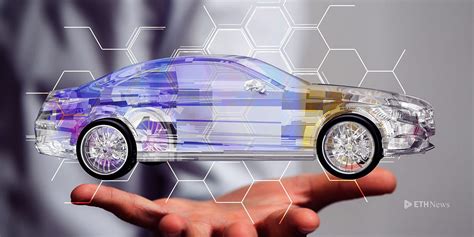The diesel industry has undergone significant transformations over the years, driven by advances in technology, changing regulatory requirements, and increasing demand for more efficient and environmentally friendly solutions. At the forefront of this revolution is the development of hi-tech diesel technologies, which are transforming the way diesel engines are designed, manufactured, and used. In this article, we will explore five ways hi-tech diesel is revolutionizing the industry.
The importance of hi-tech diesel cannot be overstated. As the world's population continues to grow, so does the demand for energy and transportation. Diesel engines play a critical role in meeting this demand, powering everything from cars and trucks to generators and industrial equipment. However, traditional diesel engines have several limitations, including high emissions, low efficiency, and limited performance. Hi-tech diesel technologies aim to address these limitations, offering a range of benefits that are transforming the industry.
1. Improved Fuel Efficiency
One of the most significant advantages of hi-tech diesel is its improved fuel efficiency. Traditional diesel engines typically achieve fuel efficiency of around 30-40%, with the remaining energy lost as heat or emissions. Hi-tech diesel engines, on the other hand, can achieve fuel efficiency of up to 50% or more, thanks to advances in technologies such as:
- Common Rail Fuel Injection: This technology allows for more precise control over fuel injection, resulting in improved fuel efficiency and reduced emissions.
- Turbocharging: Turbocharging enables diesel engines to achieve higher power outputs while maintaining or even reducing fuel consumption.
- Exhaust Gas Recirculation (EGR): EGR systems reduce emissions by recirculating a portion of the exhaust gas back into the engine cylinders, reducing the amount of oxygen available for combustion and resulting in lower emissions.

These technologies, among others, are driving significant improvements in fuel efficiency, reducing the environmental impact of diesel engines and saving operators money on fuel costs.
2. Reduced Emissions
Hi-tech diesel engines are also designed to reduce emissions, addressing concerns around air quality and climate change. Technologies such as:
- Selective Catalytic Reduction (SCR): SCR systems use a catalyst to convert nitrogen oxides (NOx) into nitrogen and water, reducing emissions by up to 90%.
- Diesel Particulate Filters (DPF): DPFs capture particulate matter (PM) from the exhaust gas, reducing emissions by up to 99%.
- Homogeneous Charge Compression Ignition (HCCI): HCCI engines use a combination of fuel injection and compression ignition to reduce emissions and improve fuel efficiency.

These technologies are helping to reduce emissions from diesel engines, making them a more environmentally friendly option for operators.
3. Increased Performance
Hi-tech diesel engines are also designed to deliver increased performance, making them suitable for a wider range of applications. Technologies such as:
- Downsizing: Downsizing involves reducing the size of the engine while maintaining or increasing power output, resulting in improved efficiency and reduced emissions.
- Turbocharging: Turbocharging enables diesel engines to achieve higher power outputs while maintaining or even reducing fuel consumption.
- Advanced Materials: Advanced materials such as ceramic and composite materials are being used to reduce engine weight and improve performance.

These technologies are driving significant improvements in performance, making hi-tech diesel engines suitable for a wider range of applications.
4. Advanced Engine Management Systems
Hi-tech diesel engines also feature advanced engine management systems, which are designed to optimize engine performance, efficiency, and emissions. These systems use sophisticated algorithms and sensors to monitor and control engine parameters such as:
- Fuel Injection: Advanced fuel injection systems enable more precise control over fuel injection, resulting in improved fuel efficiency and reduced emissions.
- Ignition Timing: Advanced ignition timing systems enable more precise control over ignition timing, resulting in improved engine performance and reduced emissions.
- Emissions Monitoring: Advanced emissions monitoring systems enable real-time monitoring of emissions, enabling operators to optimize engine performance and reduce emissions.

These systems are driving significant improvements in engine performance, efficiency, and emissions, making hi-tech diesel engines a more attractive option for operators.
5. Integration with Alternative Fuels
Finally, hi-tech diesel engines are being designed to integrate with alternative fuels, reducing dependence on traditional fossil fuels and reducing emissions. Technologies such as:
- Biodiesel: Biodiesel is a renewable fuel made from organic matter such as plants and waste, offering a cleaner and more sustainable alternative to traditional diesel.
- Hybridization: Hybridization involves combining diesel engines with other power sources such as electric motors, reducing emissions and improving fuel efficiency.
- Hydrogen Fuel Cells: Hydrogen fuel cells offer a zero-emission alternative to traditional diesel engines, using hydrogen as a fuel source to generate electricity.

These technologies are driving significant improvements in fuel efficiency and reducing emissions, making hi-tech diesel engines a more attractive option for operators looking to reduce their environmental impact.
Gallery of Hi-Tech Diesel Engines






Conclusion
In conclusion, hi-tech diesel engines are revolutionizing the industry, offering a range of benefits including improved fuel efficiency, reduced emissions, increased performance, advanced engine management systems, and integration with alternative fuels. As the world's population continues to grow, so does the demand for energy and transportation. Hi-tech diesel engines are playing a critical role in meeting this demand, offering a cleaner, more efficient, and more sustainable alternative to traditional diesel engines. Whether you're an operator looking to reduce your environmental impact or simply looking for a more efficient and cost-effective solution, hi-tech diesel engines are an attractive option.
What is hi-tech diesel?
+Hi-tech diesel refers to advanced diesel engine technologies that offer improved fuel efficiency, reduced emissions, and increased performance.
What are the benefits of hi-tech diesel?
+The benefits of hi-tech diesel include improved fuel efficiency, reduced emissions, increased performance, advanced engine management systems, and integration with alternative fuels.
What are some examples of hi-tech diesel technologies?
+Examples of hi-tech diesel technologies include common rail fuel injection, turbocharging, exhaust gas recirculation, selective catalytic reduction, diesel particulate filters, and homogeneous charge compression ignition.
